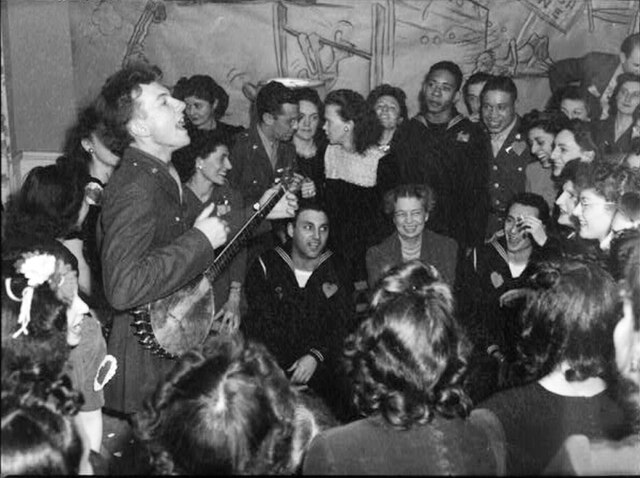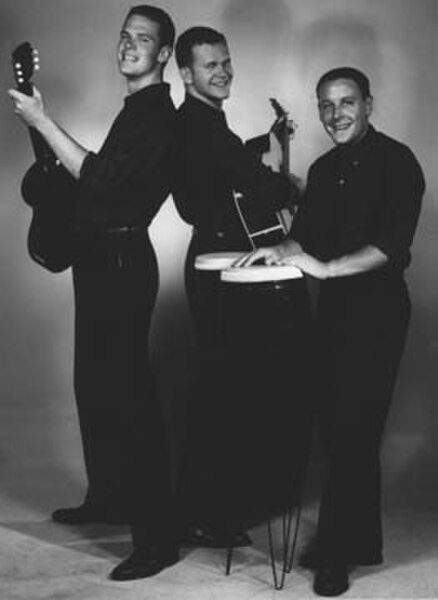Odetta Holmes, known as Odetta, was an American singer, often referred to as "The Voice of the Civil Rights Movement". Her musical repertoire consisted largely of American folk music, blues, jazz, and spirituals. An important figure in the American folk music revival of the 1950s and 1960s, she influenced many of the key figures of the folk-revival of that time, including Bob Dylan, Joan Baez, Mavis Staples, and Janis Joplin. In 2011 Time magazine included her recording of "Take This Hammer" on its list of the 100 Greatest Popular Songs, stating that "Rosa Parks was her No. 1 fan, and Martin Luther King Jr. called her the queen of American folk music."
Odetta in 1961
Odetta at the Burg Waldeck-Festival, West Germany, 1968
Odetta performing in 2006
American folk music revival
The American folk music revival began during the 1940s and peaked in popularity in the mid-1960s. Its roots went earlier, and performers like Josh White, Burl Ives, Woody Guthrie, Lead Belly, Big Bill Broonzy, Richard Dyer-Bennet, Oscar Brand, Jean Ritchie, John Jacob Niles, Susan Reed, Paul Robeson, Bessie Smith, Ma Rainey and Cisco Houston had enjoyed a limited general popularity in the 1930s and 1940s. The revival brought forward styles of American folk music that had in earlier times contributed to the development of country and western, blues, jazz, and rock and roll music.
Singer-songwriter Woody Guthrie emerged from the dust bowl of Oklahoma and the Great Depression in the mid-20th century, with lyrics that embraced his views on ecology, poverty, and unionization, paired with melody reflecting the many genres of American folk music.
Pete Seeger entertaining Eleanor Roosevelt, honored guest at a racially integrated Valentine's Day party marking the opening of a canteen for the United Federal Workers of America, a trade union representing federal employees, in then-segregated Washington, D.C. Photographed by Joseph Horne for the Office of War Information, 1944.
The Kingston Trio in 1958
Woody Guthrie in 1943







